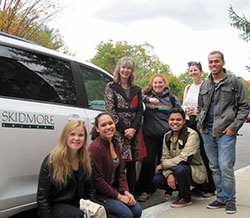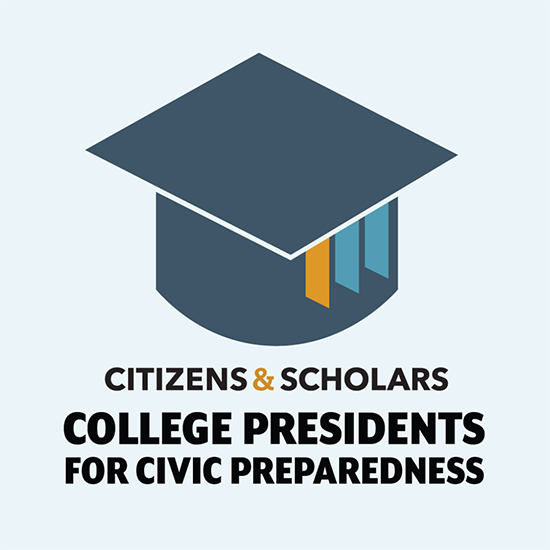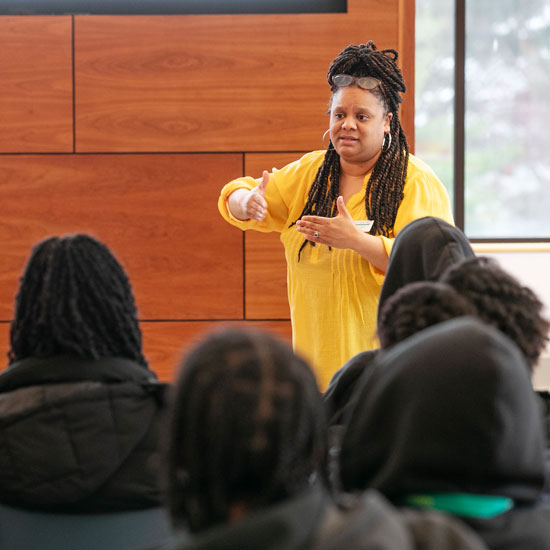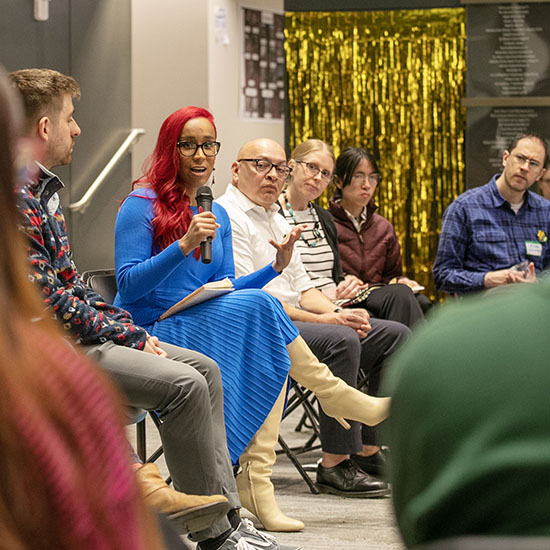Social work students apply skills to special counseling
by Jessica Kong '16
Saratoga Bridges, a nonprofit agency that serves adults with developmental disabilities and their families, has been a longtime partner of Skidmore’s Social Work Department. Crystal Moore, professor of social work and chair of the department, teaches “Social Work Practice with Individuals and Families,”a course in which she pairs students with individuals from Saratoga Bridges. Each semester, students conduct six clinical interviews with participants while helping them develop goals. At the end of the course, the students synthesize their interactions and insights into a written psychosocial assessment of the person they have been counseling.
It was these student assessments that prompted Moore to bring grief counseling into the program, specifically for participants identified by Bridges staff.

Students with Prof. Moore about to head off
to Saratoga Bridges in the new Skidmore van
“What I found from the student interviews of Saratoga Bridges participants—listening to those interview tapes and reading the files that the students produce—is that participants from Saratoga Bridges experience significant ‘disenfranchised grief,’ a type of grief that isn’t acknowledged for many different reasons,” said Moore. “Maybe the mourner isn’t acknowledged as someone who can experience grief. Maybe the loss is not socially recognized.”
With these grief counseling sessions, Moore and her students validated the unacknowledged pain. Sometimes the pain was from having to say goodbye to a Saratoga Bridges staff member who relocated. Neighbors moved, pets ran away, or a favorite and familiar treasure was lost. Although these losses were recognized and talked through, the most pressing conversations between Moore, students, staff, and mourning participants were often about a loved one who had passed away. Moore emphasized the role of active listening in the healing process.
Said Moore, “What we did was give them a place to talk about their loss. And really, with a lot of people who have experienced losses, they just need to talk about it. That’s what makes it better.”
Said Rebecca Shesser ’15, a social work major, “Some of the Bridges participants wanted and needed a place to discuss loss. We did research in the literature on individuals with intellectual and developmental disabilities and how they deal with grief and loss. Working off that literature, we created agendas for three group sessions, and we were each matched one-to-one with a Bridges participant. We met with them three times as a group at Saratoga Bridges and also for individual sessions at their homes.”
To break the silence and begin to help, Moore and students asked the grieving participants to bring in a memento of the person who had died to share with the group. As the counseling sessions progressed, the Bridges participants continued to transform their pain into loving representations of the people they had lost.
Moore tenderly recalled the nature of these sessions. “People developed art pieces to memorialize the person. Other people wrote letters to that person. We read the letters, showed our artwork, and talked about the memories of those individuals.”
Shesser developed an intuitive sense of when to listen seriously and when to introduce some lightness into the conversation. “My participant had a great sense of humor. We would often laugh. Not about death, but to make it so that we were not always talking about sad things.”
Moore reaffirmed the power of empathy and positivity in helping those who are grieving to get to a better place. “We laughed sometimes. People told funny stories about the people that they love; the staff and students also participated in the storytelling. It was a coming together of different groups of people that shared something in common, which is loss and grief.”



